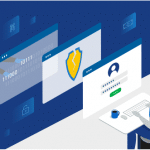Windows Virtual Desktop preview goes public

Back in September last year Microsoft announced the launch of its Virtual Desktop to allow Windows to be run in the cloud.
At the time, however, it was only a private preview. Today the public preview launches, so anyone with an Azure subscription can try out the service.
Microsoft brings its Windows Defender antivirus software to Mac

In February, Microsoft announced Microsoft Threat Experts, a new service within Microsoft 365 Security designed to better protect businesses.
Today, the software giant extends its endpoint protection platform to Mac, and in keeping with that move renames the Windows Defender ATP platform to Microsoft Defender ATP.
SoftNAS vulnerability lets attackers bypass authentication

Researchers have uncovered a vulnerability in the SoftNAS Cloud data storage platform that could be used to gain access to the webadmin interface without valid user credentials.
Security technology company Digital Defense found the previously undisclosed vulnerability which arises if customers have not followed SoftNAS deployment best practices and have openly exposed SoftNAS StorageCenter ports directly to the internet.
Insider threats pose the biggest security risk

According to a new study 91 percent of IT and security professionals feel vulnerable to insider threats, and 75 percent believe the biggest risks lie in cloud applications like popular file storage and email solutions including Google Drive, Gmail and Dropbox.
The report from SaaS operations management specialist BetterCloud also shows 62 percent of respondents believe the biggest security threat comes from the well-meaning but negligent end user.
Organizations not effective at getting value from their data

Businesses increasingly understand that staying competitive means making smart use of their data. But a new survey from Syncsort finds that just nine percent of respondents say their organization is 'very effective' at getting value from data while 48 percent responded 'somewhat effective'.
Making data accessible to users across the enterprise is the third most cited IT challenge and only half call their organization effective in getting data insights to business users.
How edge computing is making 5G possible [Q&A]

This month, Verizon announced its intention to increase its use of edge computing technology, having tested edge functions in its 5G network in Houston resulting in massively decreased network latency.
This move is another example of how new technologies will enable and extend digital transformation projects at the edge, and this is only the beginning.
Addressing the skills gap with advanced web attack training now available online

There is a shortage of cybersecurity professionals and coupled with the exponential growth in web applications used within businesses and by consumers around the world, there's a growing risk of flaws being exploited.
To combat this problem penetration testing specialist Offensive Security is making its Advanced Web Attacks and Exploitation (AWAE) training available as an online course.
Analysis of Remote Access Trojans helps understand third-party business risk

Remote Access Trojans (RATs) are often used to steal information from enterprise networks. By looking at network metadata, analysts at threat intelligence firm Recorded Future have been able to identify RAT command-and-control (C2) servers, and more crucially, which corporate networks are communicating to those controllers.
This offers insight about third-party organizations that Recorded Future clients can use to get a better understanding of potential third-party risk to their own data.
What is a zombie (comatose) server, and why should I care?

Whatis.com states that "a zombie server is a physical server that is running but has no external communications or visibility and contributes no compute resources, that it consumes electricity but is serving no useful purpose."
In a time when a server was dedicated to running a particular application or performing a specific function such as the late 1990s or early 2000s, this definition of a "zombie" made sense. Generally speaking, zombie servers happened because they were forgotten, or never configured for the purpose for which they had been acquired (a dirty secret of the IT industry). In many cases, once plugged in, the server operating systems never allowed these servers to enter their sleep state, for fear that they would be too slow to respond. Identifying these systems as zombies was relatively easy -- their power consumption was constant (a flat line).
New platform helps enterprises to deploy and manage microservices networking

More and more organizations are moving to a cloud-native, microservices architecture. But doing this at scale can be challenging as businesses lose the ability to trace, debug, and ultimately manage rapidly proliferating services.
New company Tetrate is aiming to shake up the microservices networking market by combining the best of open source technologies with enterprise-grade extensibility, scalability, and performance.
Employees waste two hours a day searching for data

According to new research from data protection specialist Veritas Technologies, employees are losing two hours a day searching for data, and data management challenges are costing businesses as much as $2 million a year.
On the other hand the study of 1,500 IT decision makers across 15 countries, carried out by Vanson Bourne for Veritas, shows organizations that invest in effective day-to-day management of their data have reported cost savings and better employee productivity as a result.
Microsoft to start selling Windows 7 Extended Security Updates from April 1

While Windows 10 enjoys a significant and growing userbase, there are still many Windows 7 users out there. This includes a large number of enterprise users, and for these customers security is of paramount importance.
Last month we learned about the pricing for Windows 7 Extended Security Updates (ESU) which will be available when support for the aging operating system ends in 2020. Now we know that ESU will go on sale from the beginning of next month.
Creative destruction: Using data skills to rethink business cultures

Data should underlie every business decision. Yet too often some very human cultural artifacts really lead the business down certain routes where it moves away from modelling decisions on the best data. It’s only human. Yet to be a better human guiding the corporate machine we need to transcend the way "we’ve always done it".
In the data age gut, tradition, and inertia shouldn’t be why strategic decisions are made. And yet, hand on heart, we all continue to do it, because that’s part of being human. Well, it’s time to be more than human, time to get creative. Time to smash the way "we’ve always done it." Time to apply some creative destruction to break down the worst parts of making decisions within organizations, and start using the data, technology, and creativity that lies around us, untapped.
How the tech industry is becoming more attractive to women

It won't have escaped your notice that today is International Women's Day. The technology sector has traditionally been a male dominated one, but it seems that efforts to attract more women are paying off.
Analysis from Eclat Marketing of speakers at last week's RSA Conference shows a 53 percent increase in female speakers, with 232 compared to 153 in 2018.
New tool aims to improve the effectiveness of workforce communication

At a time when there's intense competition in the jobs market, the importance of workforce communication in employee engagement is often overlooked.
San Francisco-based communications platform SocialChorus is launching a new tool called Content Planner that gives organizations a single place to plan their content strategies and measure the impact of employee communications.
Recent Headlines
Most Commented Stories
BetaNews, your source for breaking tech news, reviews, and in-depth reporting since 1998.
© 1998-2025 BetaNews, Inc. All Rights Reserved. About Us - Privacy Policy - Cookie Policy - Sitemap.